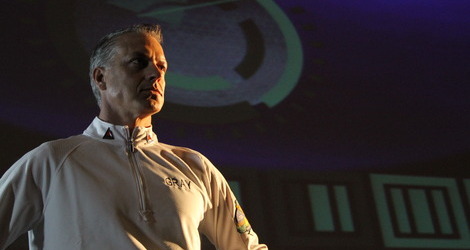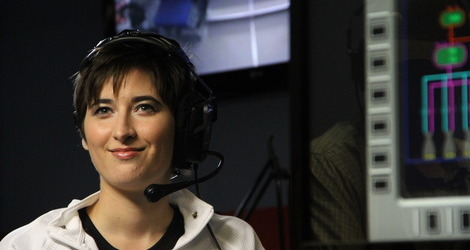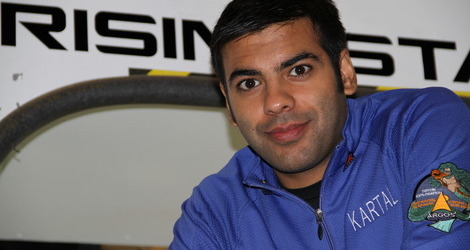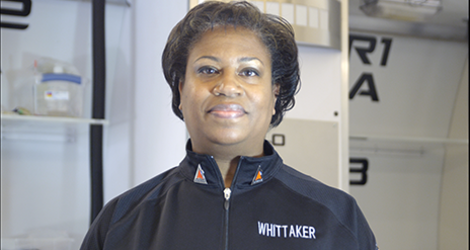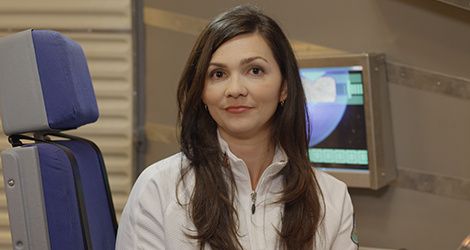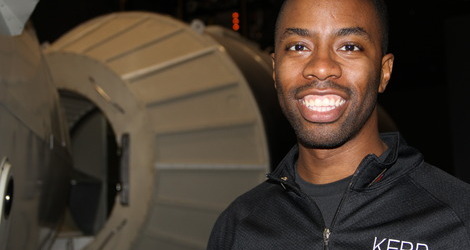The Crew
Charles Conrad Gray
Charlie has come to the realization that he will never know where his life will take him. A series of adventures and unexplainable circumstances guided him through a childhood without a consistent mother and father figure. At the age of 3, Charlie's biological parents had gone. Charlie was bounced from one family member to another until the age of 6. Once in a school setting, Charlie found stability for a few years in his elderly aunt's home. Unfortunately, a fire resulted in the home being destroyed, the death of his aunt and a ripple effect on the family that left Charlie alone once again. As a consequence, Charlie found himself by the age of 12 on his own and self-sufficient. The most challenging aspect of being 12 without a solid family structure was staying out of trouble and finding work enough to buy food. Odd jobs, charity and resourcefulness became common everyday themes.
Some ingenuity and a little dishonesty landed Charlie in the military earlier than most. At 16 he had already been through basic training and was serving his first post in Germany as part of the 2nd Armored Division. The life of a young military police officer is not what Charlie had imagined when entering service. Most of his days were spent on post guarding an entrance or exit gate or responding to a domestic dispute in the barracks. A year went by and then two. Multiple conversations with his commanders and fortunate timing of reenlisting allowed him to move from the military police to mechanic training. Charlie liked the puzzles he faced in repairing and maintaining vehicles for the division, but longed to become more involved with strategy and navigation.
Eight years as the go-to mechanic in the battalion gave Charlie a great amount of pride. At 26 Charlie found himself in a new challenge and new location, this time in Southeast Asia organizing strategic observation missions. As many of his experiences in life, this was cut too short after only 8 months. The strategy and operations management aspect of his work in Southeast Asia fascinated him. Building on that experience he soon found himself providing navigation consultation to both government and private space exploration enterprises. Knowledge of system mechanics, operations management and practical engineering has made Charlie one of the premier space navigators.
Half a lifetime of schooling and academic pursuits was never in the cards for Charlie. Humility, self-confidence, a forced willingness to adapt to new challenges and life had proved the only education Charlie really needed. Intelligence comes in many forms and Charlie seemed to be gifted in all of them. Solving puzzles was just something he enjoyed, whether the solution be a physical manipulation of parts or a cerebral exercise in tactics. Determination and grit describe the man that is now in his mid-forties. Hired as the chief navigator on Argos 1 comes with a huge responsibility that he is not only willing to take on, but genuinely appreciates. The crew of Argos 1 is likely to find not only a valuable professional, but also a trustworthy friend.
"Why? I get that question all the time. It's kind of an open ended one word question, so I'll give you the most detailed answer I can think of. . . why not?"
Kara Anne Longfellow
Kara has found love exactly three times in her life. Some would say that for 25, she has been fortunate. Kara would disagree. Only one of these loves still remains and she holds to it more strongly because of the tragic losses of the other two. She is not a weak individual by any means. Quite to the contrary, she is confident; has a natural beauty; is trustworthy; and always pulls through (albeit somewhat unconventionally at times).
At the age of 13 her world came crashing down around her as she realized what dire straights her family faced. Her mother had been a stay-at-home mom focused on volunteering in the community and keeping the financial records for their church. Her father worked at the local processing plant as a foreman. He made pretty good money; enough to support his family. Kara remembers the night very clearly when he came home and began to cry at dinner when he told her and her mother that the plant was closing and he would have to start looking for another job. Neither Kara's mother nor father had more than a high school education, but were determined to give that experience to her. A few months went by and her father was unable to secure anything more than day labor work a few times. Kara's college fund and the family's meager savings account had both been depleted. Eventually, their house and one of the cars were taken by a collection agency for non-payment. The financial issues in the family were something that Kara could understand, but the emotional turn her father took was too much. By the time Kara was 16, she found herself with a father with addiction problems, a mother without hope and living in a one-bedroom apartment where the couch was her bed. Kara had loved her father and mother so much, but could not emotionally process the feeling of abandonment she now felt. She left home at 17, moved out on her own and began community college courses and working as a waitress in a dinner. Her only keepsake from her family is her grandmother's locket that she still wears.
Lost and alone, Kara found herself in the library of the college she was attending more often than not. A bright spot in her frequenting this place was the introduction of Kathik who worked in the library part time. Kathik and Kara became quite close over a short few months. Eventually, they began dating and signing up for the same classes. Kara learned about an entirely new culture through Kathik. He was born and raised in Mumbai, India and shared some of the traditional Indian culture and taught her about Shastar Vidiya, an ancient martial art. Kathik had a steel bracelet made for her in the style of what was traditionally worn by those following this way of life. He moved at the age of 22 with his mother and father due to a promotion his father had received with a budding aerospace company. Kara fell for Kathik quickly. He had so much experience that she had never had, came from a stable family, was kind and seemed to have a solid foundation for his life. Kara dated Kathik for 2 years, 10 months and 28 days. During that time, Kara had finished her Associates degree in computer programming and networking and had begun a paid internship with the aerospace company for which Kathik's father worked. About half way through her internship, the company decided to move operations back to India and although Kara was one of the most impressive young programmers at the company, she was not asked to move. Kathik ultimately chose to move back to India with his family, leaving Kara alone once again.
Fortunately, Kara had found her third love by that point. Just before the company and Kathik relocated, her supervisor recommended her for a fulltime position with ChronoCom, a forward thinking, and high-tech communications firm. Only a year after starting her position, Kara was offered her first chance at space travel. She spent six months repairing and reconfiguring the computer and communications systems on a moon colony that was beginning to show its age. A short time in space was all it took. Kara had found her passion, her drive and her life.
ChronoCom was so successful in these short repair and reconfigure missions, that the firm won the contract for Argos1. Kara was among 10 strong applicants for the position, but her clear enthusiasm and recent successes gave her the edge. At age 25, Kara would be the youngest individual on the crew and would have enormous responsibility in maintaining communications and computer systems. She was nervously excited about the opportunity.
"Space is mostly empty, full of nothing. So when you explore a world like Triton you are interacting with an incredibly new environment and something that is incredibly old at the same time."
Koray Jahan Kartal
Koray Jahan was born in Ankara, Turkey to successful merchant parents. The family textile business had grown large enough that at the age of 7, his father was offered an executive position with the Institute of German Textile Retail Traders, which moved them from Ankara to Kassel, Germany. As a young child in Germany, there is little more exciting than the dream of becoming a professional football (soccer) player. As Koray grew, so did his talent and by the time he was 15 he was being scouted for teams across Europe.
He and his family stayed in Germany another year before moving again. This time, it was Koray that had initiated the move. He had been recruited to train with the English National Team in London for the summer and had impressed the coaching staff. They encouraged him and his family to consider moving to London for more intensive early training. The next two years were filled with camps, long weekends, scrimmage matches and a strict diet and workout routine.
At 20 years old he was playing for Manchester United and enjoying a successful season. During a match against long time rival Manchester City, Koray suffered a serious injury while being tackled by a defender that broke both his left tibia and fibula. The injury ended his football career and took a year of intensive physical therapy to regain full mobility. There were complications during recovery that put Koray back in the hospital multiple times. It was during this time that Koray decided to pursue medicine.
Koray was trained at St George's University of London as a physician's assistant in orthopedics and sports medicine. Koray had always planned on returning to the sports arena as a clinician for Manchester United. He had kept up relationships with the coaches and players during his three years of recovery and schooling. Shortly after graduation, he reached out to his contacts at Manchester United seeking a position. At the time, the only position available was part time as an assistant to the fitness coach. Although he seriously considered this position, it was not what he had imagined.
Continued searching for work landed him an offer with Cooper Medical Machines (CMM). The position was part clinical and part research and development. The position had nothing to do with football, but the salary was good and the work environment seemed exciting. CMM being located in Manchester was also a plus as he could regularly attend Manchester United games. His part time clinical work was satisfying enough to keep his finger on the pulse of clinical practice, but he found the research and development aspect of his work most engaging. Koray found himself spending countless hours in the research lab, online looking up past research, and evaluating test results. Koray was the youngest member of the research team by nearly 20 years. CMM had been working toward automating medicine for the last 30 years with moderate success. The company had recently pioneered a new surgical technique using a tiny flexible needle that could be threaded through tissue to an injury site. The device was able to repair damaged tissue, collect samples, and monitor real-time changes in molecular gradients. This gave the team great pride and spurred development of a variety of other products that had been sidelined due to funding. At the age of 31, Koray had become well known as the face of the CMM research and development team and was giving public lectures on the technology and meeting with investors around the globe.
CMM submitted proposals to supply mechanical medical suites to many different entities, but the successful contract that put CMM products on Lunar Base 5 and Deep Outpost 3 gave the company the notoriety they had been seeking. It was not surprising to anyone in the company when Koray was asked to represent CMM and serve as the Health Officer on Argos1. Koray had played soccer in front of thousands, picked himself up after his dreams of a professional football career had crumbled, and had been instrumental in CMM's success; but he had never been more nervous and scared of what the future held.
"Part of our drive as a species is exploration, and I can't think of a better exploration that pushing the limits of technology while studying human health at the same time in space."
Geraldine Agnes Whittaker
By most standards, Geraldine has had a fulfilling life up to this point; a mother of two daughters, a widow, a community servant, active church member and a successful mechanical engineer. According to Geraldine, there is still "something to do." Her adventurous spirit combined with her calm and mothering nature has served her well through life.
Although born in Stroud, Oklahoma halfway between Tulsa and Oklahoma City, she never considered herself from Oklahoma. Her mother, father, sister and she all made the long drive east when Geraldine was just 18 months old to their new home in Indiana, Pennsylvania. Indiana was one of many towns in rural Pennsylvania that took their names after states within the U.S. When Geraldine traveled outside of Pennsylvania, she found others confused by the name of her hometown. Nonetheless, Geraldine called Indiana, Pennsylvania home. Indiana was small community that felt comfortable but offered many conveniences as it was home to Indiana University of Pennsylvania. It was there that as a college junior, Geraldine met her, now late, husband. Geraldine and Paul were married the summer after graduation from college and moved with her husband to State College, Pennsylvania where Paul had taken a position with Penn State University. Although Geraldine had graduated with honors from college with a mechanical engineering major, she found herself drawn to begin a family and stay at home with her children.
Geraldine had two beautiful twin daughters. Raising her daughters brought more joy to Geraldine than she had ever imagined. Geraldine, Paul and their daughters lived in State College for 22 years together before Paul unexpectedly passed away from a massive heart attack. Paul had always taken care of himself; exercised regularly, did not smoke, kept an eye on his weight and tried to eat a balanced diet. It was a shock to Geraldine when she received the phone call that day from Carl, a close friend of Paul's. Carl and Paul were planning on having lunch that day. When Paul did not show up for lunch and had not returned Carl's calls, Carl went to his office. Paul was lying on the floor of his office behind his desk and it was too late by the time Carl found him.
Geraldine and her daughters all processed the death differently. One daughter took a position with a company in Copenhagen and moved later that year to Denmark to lead the sales team. The other daughter followed her dream of moving to Arizona to start an art studio in Flagstaff. Geraldine held tightly to her many friends and support structure in State College and decided to stay in the place where she had made a home.
Two years after her husband passed, Geraldine decided that she wanted to go back to school and pick up where she had left off in mechanical engineering. Penn State offered her free tuition as part of her late husband's death benefit, so she was able to attend classes for free. She realized how much had changed over the past 20 years since she had been out of school. Her skills were still there, but were quite rusty from lack of use. After a difficult first semester of classes, she was able to find her groove and began enjoying learning again.
Three years later, Geraldine graduated with her second bachelor's degree and entered the mechanical engineering graduate program at Penn State. She found friendship with and mentorship from many of the professors within the department but found herself spending time with other graduate students in Carl's laboratory in aerospace engineering. Carl and his wife had been a constant source of comfort for her and her daughters over the past five years and she found the research being conducted in Carl's lab cerebral and engaging. She soon transferred departments and began work on a systemic approach to integrate multiple systems of modern space flight vehicles.
Her work was part of a large international team of individuals working on integration and crosstalk among multiple platforms. The success of the team was remarkable. In two short years, 18 of the 20 systems were integrated into one coherent software application. Geraldine's background in mechanical engineering was a key aspect of the integration as she was able to redesign crucial systems to fit within the new structure. She continued to work on this project after her graduation as a senior technician in the department of aerospace engineering at Penn State for another year.
She found herself as one of the key senior individuals on the project and had been consulted during the construction of Argos1 to ensure systems were going in correctly. She felt that she must not have been the ideal candidate in the selection process as she was now 51 years old, but in fact she was carefully selected for her skills and knowledge about the ship and its integrated systems. Humbled by the offer, she graciously accepted the position. Although she was nervous about such a long trip, she was excited to take this next step in her life as a key crewmember of Argos1.
"It isn't just knowledge that gets you through. You have to know what you know- it has to be part of you, an extension of you."
Gabriella Veliz Kerr
As a quiet child raised by a large extended family group all living within the same apartment building, it was easy for Gabriella to feel isolated and lost. She often sought sanctuary hiding in the basement under the central stairwell of the apartment building. Her imagination granted an idealistic view of the world in which she lived. She knew from a very early age she did not want to follow in her mother's footsteps as a stay-at-home mother. Gabriella had great appreciation for her mother, as she was the primary caregiver to not only Gabriella, but also her six older brothers and sisters. Being the youngest in a family of twenty-two, if you included the immediate extended family, allowed her freedoms her older siblings did not enjoy at her age.
Walking one summer evening, Gabriella found herself further away from town than she had meant to travel. She had been following a road that she had not been down before. Long walks in the evenings were part of her summer routine. On this evening, she had gotten lost in a daydream of flying an airplane. She had seen movies where fighter pilots saved the day with a quick turn and focused eye, crop-dusters had flown fighter jets, and explorers were able to see parts of the world undiscovered thanks to specialized planes. Closing her eyes, she could feel the wind blowing through her long raven hair as she piloted through the sky. Gabriella had plans as big as her imagination and on this walk, everything seemed to come together with an unexpected clarity. At the age of nine, Gabriella knew she was going to fly.
One of the only ways for a young Guatemalan girl with incredible ambition to achieve such great heights was to leave much of her family behind. She spent every moment she could dreaming of the day when she would take off for the first time. The thought of the rush of wind in her hair and the force of gravity pressing on her body was intoxicating. Reality eventually set in and during training, her first flight was in a medium sized commercial jet fully enclosed. There was no rush of wind in her hair as she had imagined and the G-forces on her body were nothing like she had imagined. She longed for more excitement in her life.
After ten years of commercial flying, Gabriella was offered a private piloting position with AeroVoyage. The pay and benefits were too good to pass up even if this was not the challenge she had been after. Soon after starting at AeroVoyage, Gabriella met her husband, Elijah. Elijah was a bit hard to read at first, but through multiple interactions and coincidental meetings, Gabriella found him the perfect match for her.
On a long flight from Vancouver to Toronto, Gabriella and her co-pilot found themselves in the middle of a heavy winter storm. It was nothing less than a miracle that Gabriella was able to keep the plane in the air. Lightening during that heavy snowstorm had taken out over half of the electronic sensors in the plane. Visibility was almost zero and had Gabriella not had a natural intuition for flying, everything and everyone would have been lost.
Excitement had finally found her. AeroVoyage had awarded her with a commendation for her excellent flying and promoted her to another division that was working on pilot simulations for extra planetary travel. Gabriella became not only one of the first pilots to test the new interface and controls, but also was involved from the ground level in designing the cockpit. Once AeroVoyage was awarded the contract for the design and build of the piloting controls for the Argos missions, it was a natural fit that Gabriella be considered for the pilot position on the crew. Gabriella excelled in the flight tests, in part because she had helped design the instrumentation and few knew it better. Fortunately for her, Elijah was also chosen as part of the crew for his knowledge and background in agricultural engineering. In Gabriella's mind, this twenty-year mission was a more exciting adventure than any of the fighter pilots or explorers she had seen on film as a child.
"We have a tremendous amount of data about Triton, but the reason for explorations is all the things we don't know. That is what I'm most excited about."
Elijah Murray Kerr
Elijah Kerr was the most unlikely double PhD you might imagine. Growing up in Gallion, Alabama in the middle of vast expanses of farmland, he never imagined he would end up engaged in a twenty-year mission to the most distant planet in the solar system. Elijah knew first hand about how hard it was to make a living off of the land. He was raised on land that had been passed down through three generations. It was quite the shock to his parents, especially his father, he intended to leave for better opportunity.
Elijah had always had drive, but was a quiet natured individual. School studies came relatively easily, but he often felt unchallenged. Upon graduating high school, he went to work for his father on the family farm. Hard work and long days for more than three years were enough. Elijah came home one spring day after planting, took a shower and sat down at the dinner table. Over dinner that evening, he announced that he wanted to go to college. None of Elijah's family had ever attended college and so the announcement was dismissed almost immediately.
Over the next six months, Elijah had called some of his high school teachers to help him complete the application process for three different colleges and universities. One of his favorite teachers had received her degree from Texas A&M University and had suggested that he apply. To his surprise, he had not only been accepted but had been awarded a need scholarship that covered almost all of his tuition and room and board expenses. He packed his bags and left for Texas, leaving all that he knew behind.
University life was a stark contrast to his comfortable farming community home. Only able to afford to travel back home once a year, Elijah made sure that he had spent winter break at home in Alabama. The uneasiness within the family that existed when he had left for college had turned to pride by the time Elijah had finished his second year of college. That support propelled him to seek out internships and jobs within the university setting. One of those positions ignited some deeply buried passion passed down generation to generation within his family. He suddenly saw how much good he could do for his family's farm by studying agricultural engineering.
The drive to one day return to rural Alabama and make a difference provided all the encouragement Elijah needed to succeed in graduate school. He received his first PhD in Agricultural Engineering and while finishing began a second PhD program in Molecular and Environmental Plant Sciences. By the time Elijah had finished his undergraduate and two PhD degrees, it was hard to think of Alabama as home any longer. His parents had passed and left the land to his brother, who had sold it and moved to Louisiana to work at an alligator farm.
Fresh out of his double PhD, Elijah was picked up by Christie Biologics as lead researcher in the Controlled Environment Sustainable Systems (CESS) division. Three years into this position, Elijah met Gabriella Baca while travelling back and forth to a research facility he managed on Prince Patrick Island at the far north edge of Northwest Territories, Canada. This facility had been set up to see if a controlled environment could be established and maintained in extremely cold environments. Elijah's technology development for this facility showed great promise and had been touted as one of the great breakthroughs in Agriscience. It was for this reason that Elijah was considered for Argos 1. The fact that he and Gabriella came as a team made the decision easy.
Now 38 years old, Elijah has been chosen as the chief agricultural engineer and sustainable foodstuffs manager for the mission. As such, his role will be to not only manage all foodstuffs for the twenty year mission, but also to deploy an experimental extreme cold weather habitat for crop production once on Triton.
"The news calls what I do extreme farming- which sounds like I plant seeds while base jumping. Really I'm a normal farmer that happens to grow plants in inhospitable environments."
